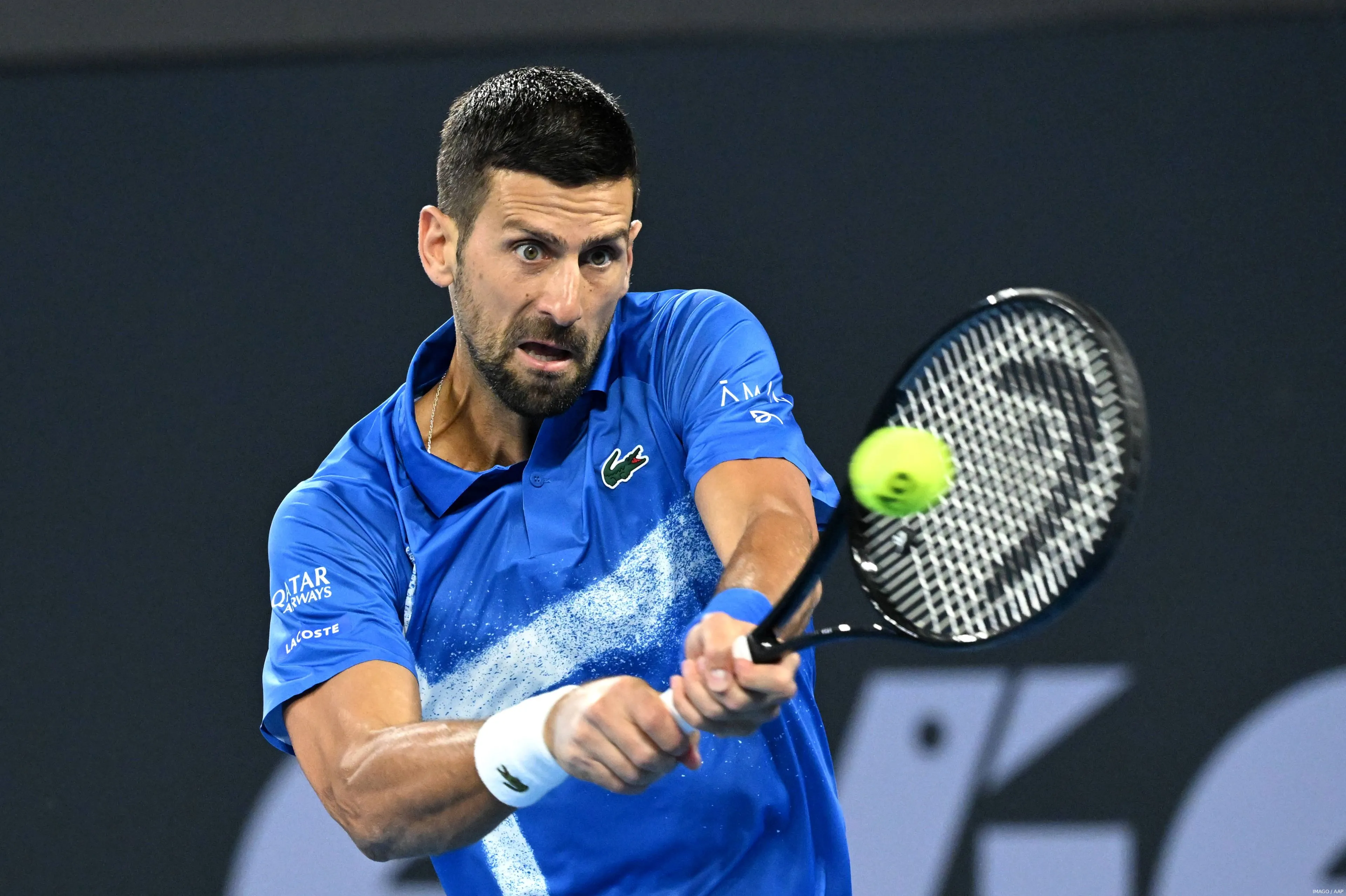At this point, Djokovic is steadfast in his view that on-court coaching should stay a private matter, believing that certain aspects of tennis are better kept out of the public eye.

Novak Djokovic, the 24-time Grand Slam champion, has voiced concerns
about a potential new feature in tennis: microphones that allow fans to hear
real-time conversations between players and their coaches. While the concept
of making these interactions accessible to the public has gained some traction,
especially as a way to engage fans and boost the sport’s popularity, Djokovic
warns that it could compromise the integrity of the game.
At the 2025 Australian Open, Djokovic spoke candidly about the issue,
expressing that while microphones might offer an exciting new dimension for
fans, the risks to a player’s strategy and privacy outweigh the benefits. The new
setup at the Australian Open has already brought on-court coaching to the
forefront, as players’ coaching boxes have been moved courtside to make
communication easier. This development followed the International Tennis
Federation’s (ITF) decision to allow on-court coaching, leaving it to individual
tournaments to decide how to implement this rule. For Djokovic, this change
has added a layer of intrigue to his matches, particularly since his friend and
coach, Andy Murray, has been offering advice from the sidelines during the
tournament.
However, the possibility of introducing microphones to broadcast these
private exchanges has sparked debate. While some see it as a fun way to
connect with fans and provide behind-the-scenes insights, Djokovic remains
cautious. “It would definitely be interesting for fans and social media, and I
understand the appeal of having viral moments,” Djokovic remarked during
his press conference. “But I’m happy with how things are at the moment.”
Djokovic’s biggest concern with the microphone idea lies in the potential for
rivals to gain a tactical advantage. “The problem I see is that your opponent’s
team could hear your discussions in real time. They could immediately relay
that information back to their player, and just like that, the surprise factor is
lost,” he explained. In Djokovic’s view, on-court coaching should maintain an
element of privacy and discretion, allowing players and coaches to strategize
without the fear of their plans being instantly exposed.
This is not the first time Djokovic has addressed the issue of privacy in tennis.
In previous years, he has advocated for a balanced approach to on-court
coaching, where players can benefit from guidance without compromising
their strategies. He believes that the introduction of microphones could
undermine this balance, turning what should be a private interaction into a
public spectacle.
On the other hand, some players support the idea of microphones, arguing
that it could make tennis more accessible to fans and provide new levels of
excitement. Nick Kyrgios, a close friend of Djokovic, has been particularly
vocal about using microphones to improve the fan experience, suggesting that
such changes could help modernize the sport and attract younger audiences.
Despite these differing viewpoints, Djokovic’s concerns are shared by others in
the tennis community. Taylor Fritz, a rising star in men’s tennis, has also
expressed his disapproval of on-court coaching in general, saying that it
detracts from the unique challenge of tennis. Fritz believes that part of what
makes the sport special is the player’s ability to strategize independently
without external input. While it’s unlikely that on-court coaching will be
banned anytime soon, Djokovic’s call for discretion highlights the need for a
careful balance between fan engagement and preserving the integrity of the
game.
The debate over microphones and on-court coaching comes at a time when
tennis is evolving rapidly. As the sport becomes more commercialized and the
demand for fan interaction increases, changes like these are becoming more
common. However, as Djokovic and others have pointed out, it’s crucial that
such changes don’t undermine the strategic and mental aspects that make
tennis such a compelling sport to watch and play.
Ultimately, Djokovic’s concerns reflect a larger conversation about privacy and
strategy in professional sports. As tennis continues to innovate, it will be
interesting to see how governing bodies like the ITF balance modernizing the
sport with preserving its core values. For now, Djokovic remains firm in his
belief that on-court coaching should remain a private exchange, and that some
things in tennis are better left behind the scenes.



